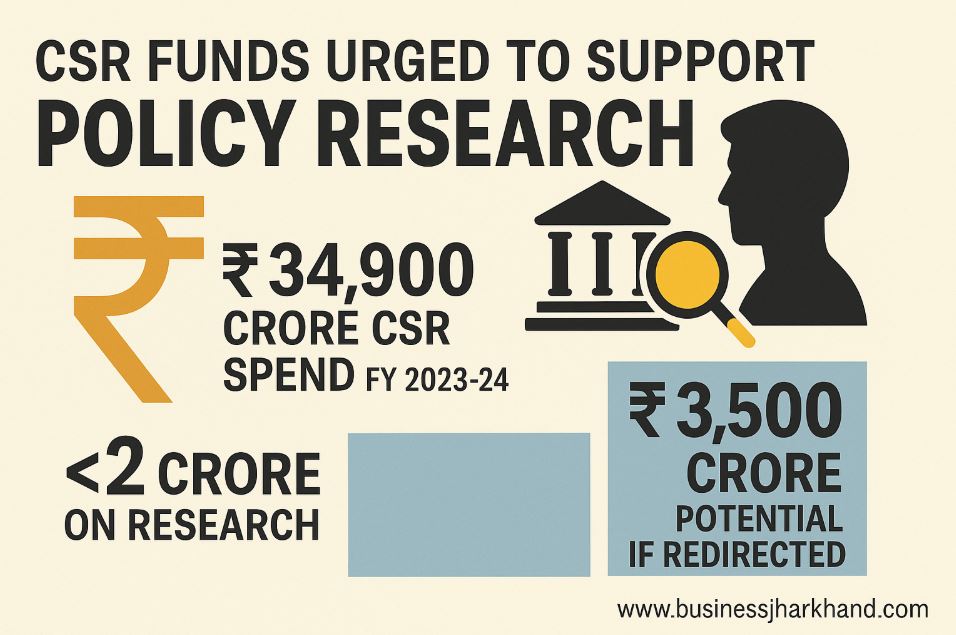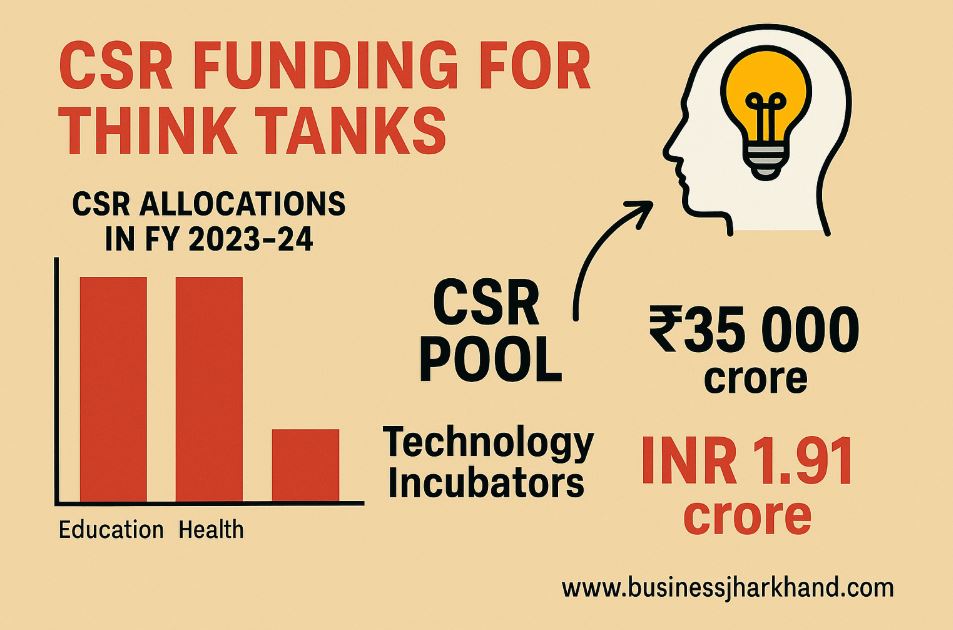India’s corporate social responsibility (CSR) spending, among the largest corporate-backed social funds globally, has transformed education, healthcare, and rural development. But experts now warn that CSR’s near-total neglect of policy research threatens India’s ambition of becoming truly Aatmanirbhar. Despite mobilising over Rs. 34,900 crores in FY 2023-24, allocations to technology incubators and research barely touched Rs. 1.91 crore nationwide, a negligible fraction of the total.
Also Read: MCA Notified New CSR Rules, Mandated Fresh CSR-1 Registration from 14th July
CSR’s Success and Its Blind Spot
Since its introduction in 2013, India’s CSR law has channelled private philanthropy into critical social sectors. Education and health together account for over 60% of allocations, addressing areas where India historically lagged. But policy experts say that without investment in research and evidence, India’s self-reliance efforts risk staying superficial, limited to physical infrastructure rather than intellectual capacity.
Robust policy research is key to developing competitive industries, building deterrence capabilities, and innovating for sectors like AI-driven healthcare. CSR, they argue, is perfectly positioned to fund this knowledge backbone, which currently suffers from chronic under-investment.

Also Read: Four Closed Mine Sites Shortlisted as Coal India Exploring Digital Transition
India’s R&D Deficit and Rising Demand for Evidence
India’s Gross Expenditure on R&D (GERD) remains at 0.64% of GDP, far below China’s 2.4%, America’s 3.5%, and South Korea’s 4.9%. Government and industry fund nearly all of this, while the private non-profit sector, including think tanks, contributes barely 1%. As NITI Aayog’s Development Monitoring and Evaluation Office (DMEO) and national missions like PM Gati Shakti increasingly demand robust data, the need for independent, long-term policy research has never been greater.
Also Read: GST Rate Cuts on Mining Inputs to Support Housing and MSME Sector
FCRA Restrictions and Domestic CSR Opportunity
The funding crisis for think tanks has deepened after the cancellation of more than 20,600 FCRA registrations between 2011 and 2024, leaving just 16,000 NGOs eligible for foreign contributions by mid-2025. Many research organisations that once relied on international philanthropy are now struggling for survival. Redirecting even 5-10% of CSR budgets could yield Rs. 1,700–3,500 crores annually, a research pool larger than historic foreign inflows to Indian think tanks.

Also Read: Hindalco Urged Policy Support as Aluminium Demand Set to Double in 5 Years
Legal Provisions Exist, Corporate Will Needed
Schedule VII of the Companies Act, 2013 already allows CSR contributions to research and technology incubators. Amendments in 2019 and 2020 even expanded these provisions during COVID-19. Experts say the law does not need reform, what needs reform is corporate imagination. Safeguards such as independent steering committees, milestone-linked disbursements, and open publication of research can mitigate reputational risks and ensure accountability.
Also Read: India’s First Digital Mining Step: Successful Dozer Push Mining Test at PEKB Mine
Building India’s Intellectual Infrastructure
India Inc. can take pride in its CSR driven transformation of schools, hospitals, and villages. But without investing in knowledge creation, India risks importing ideas even while producing goods domestically. To make Aatmanirbhar Bharat more than a slogan, experts insist CSR must add a fourth pillar of intellectual sovereignty, alongside education, health, and infrastructure.
Join the WhatsApp Group of Business Jharkhand to Stay tuned for all the latest updates of industrial-political developments in Jharkhand.


